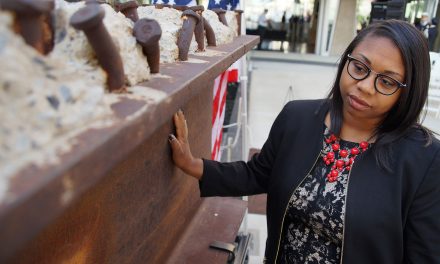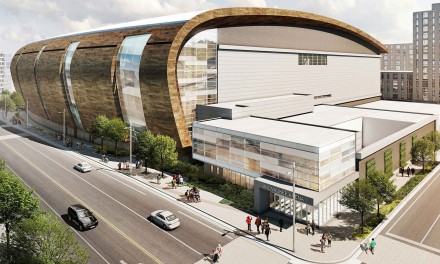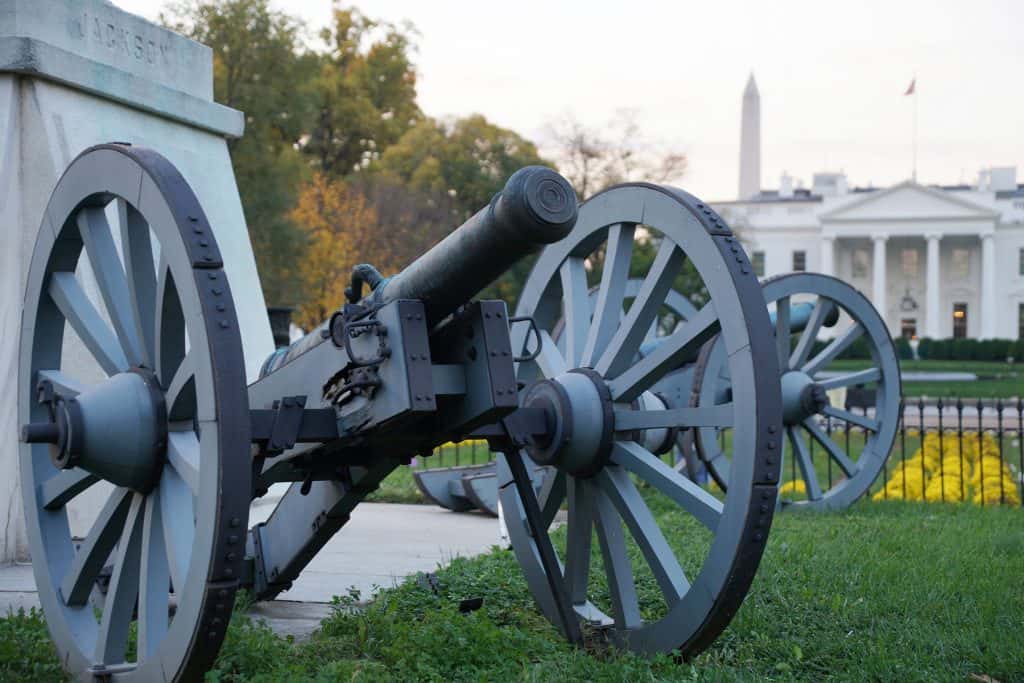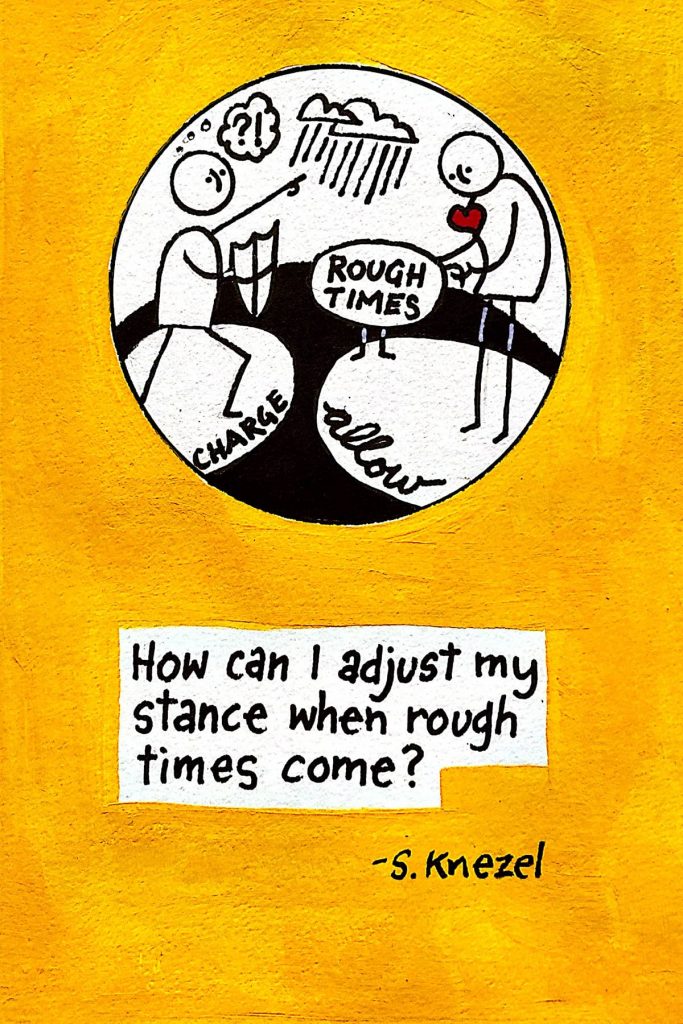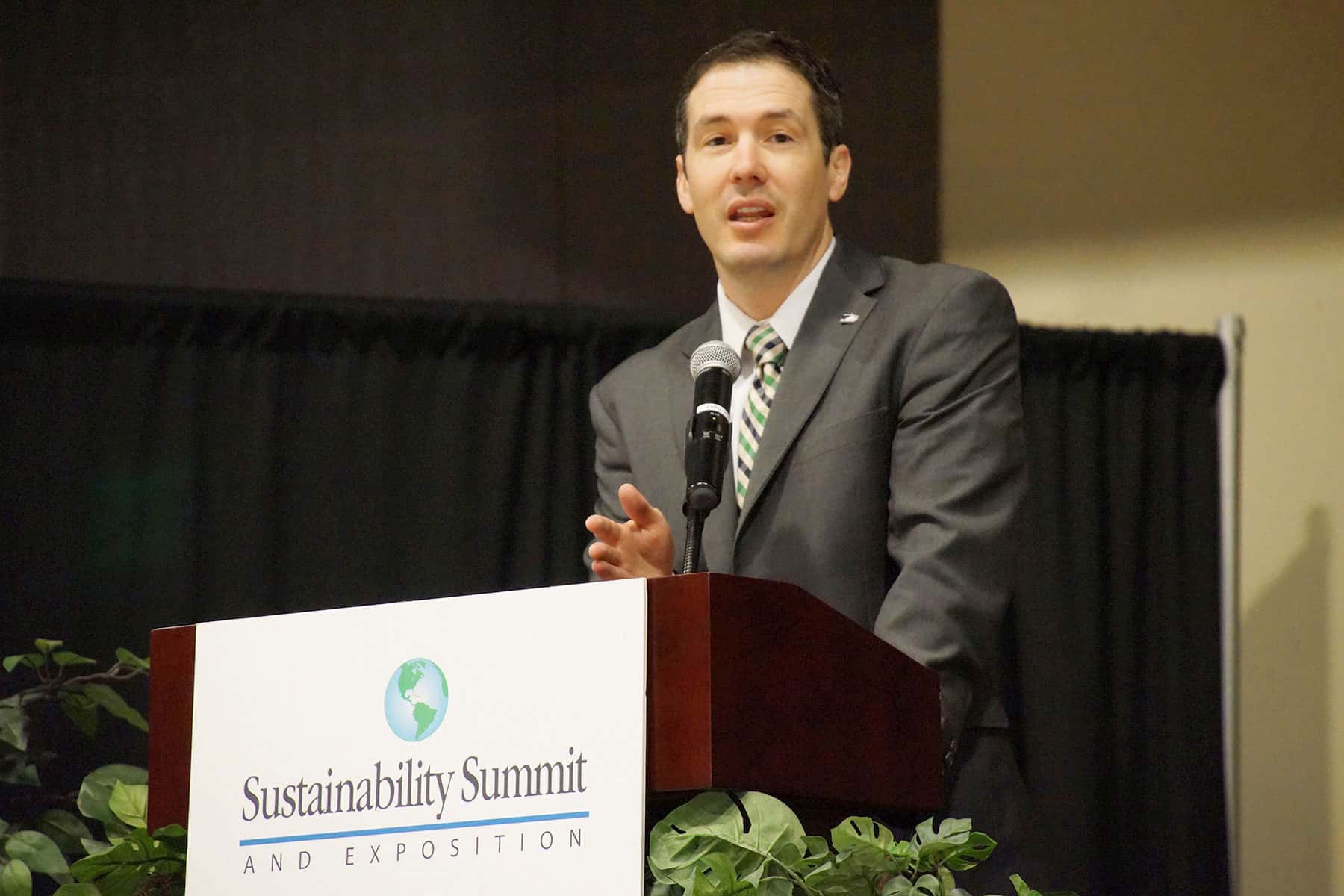
Welcome to the fifth of our interviews with companies and organizations that are supporting the upcoming Rock the Green sustainability festival in Milwaukee on Septrmbrt 17. We’re asking companies to talk about their own sustainability stories, as well as to explain why they’re supporting the event — one of the most sustainable festivals around.
This week we’re going straight to the city of Milwaukee, who certainly has a thing or two to say about why a festival like Rock the Green makes sense and why the city itself takes an interest in it. This week we talked to Erick Shambarger, environmental sustainability director for the city of Milwaukee.
Q&A with Erick Shambarger, ECO
Q: What’s the city’s definition of sustainability, and why is it important to you?
A: We strive to make Milwaukee a world class eco-city. The Environmental Collaboration Office (ECO), formerly the Office of Environmental Sustainability, develops practical solutions that improve people’s lives and the economy while working to protect and restore the natural eco-systems that are integral to our long-term prosperity. ECO collaborates with the community, develops global partnerships, and implements award-winning programs and the city’s Refresh Milwaukee sustainability plan.
We believe in the “new triple bottom line.” Ecology, Economy, and what we like to call “Ecommunity.” This reformulation of the traditional triple bottom line shows that a sustainable environment is the foundation for long term economic and social prosperity. We believe we can make Milwaukee a vibrant city for at least the next hundred years when we reorient our economy toward designing, manufacturing, and installing new clean technologies that can reduce our carbon footprint and drive sustainable water use. We can improve the quality of life for our residence and help restore the community fabric when we thoughtfully restore green spaces and our water resources. And we create a vibrant, united Milwaukee when we empower all of our residents to contribute their ideas, talents and work into the great task of our time, which is rebuilding Milwaukee in a more environmentally sustainable and humanistic way.
Q: What are the most important sustainability issues the city deals with?
A: The Environmental Collaboration Office works on the full gamut of sustainability issues as outlined in our ReFresh Milwaukee plan. The Plan has eight chapters, including energy, water, food systems, buildings, land and urban ecosystems, mobility, resource recovery, and human capital. So we work with the community on all of those issues. Our direct programs tend to focus on energy efficiency and renewable energy especially in buildings. We also focus on water issues, and restoring the urban ecosystems by turning vacant lots and hardscape into pocket parks, orchards, and green infrastructure. One of our unique contributions is helping make sustainable practices more affordable to homeowners and businesses by creating innovative financing programs for homeowners and business owners to invest in energy efficiency and renewable energy. Our PACE financing program is a national model, and our Me2, ME3, and Milwaukee Shines programs have also received national recognition. Our HOME GR/OWN program that beautifies vacant lots won an international design award at SXSW Eco.
But the Environmental Collaboration Office is not the only part of city government that takes sustainability seriously. Our Department of City Development (DCD) has done an outstanding job in incorporating sustainability into major redevelopment projects. We have four eco-industrial districts, including the Menomonee Valley, Reed Street Yards, Century City, and Harbor District that are either complete or are in development. Each one is a former brownfield site that is being redeveloped primarily for industrial purposes, but which incorporate sustainability features, reconnect with surrounding neighborhoods, and attract industries that work in the sustainability space.
Our Department of Public Works also plays a central role. They are expanding environmentally friendly transportation through both the streetcar and Bublr bike share system. They are also making it easier than ever to recycle in the city, and are piloting a compost collection program. Our Health Department is also embarking on work related to climate change and have been supportive of the local food movement as well.
Q: Sustainable thinking is no longer just a “nice to have”, it’s increasingly seen as a competitive advantage. Tell us how sustainable thinking is helping move the city forward?
A: We live in a global economy, where people and investors can move quickly around the globe. We need to make our city attractive for people to live here and for investors to put money in upgrading our buildings, infrastructure, and in new manufacturing. Things people look at when making these decisions include whether the city is clean, green, connected, and has a reasonable cost of living/doing business. Sustainability is central to all of those things. We can have it all by redirecting our limited resources from wasteful things like excessive energy use and unnecessary consumer products and redirecting those resources into building and infrastructure improvements. We can restore our natural resources when we do a better job of showing how they not only improve the environment, but that they provide ecosystem services that make our city more resilient to climate change.
Lastly, I believe that people who have a better and more frequent connection to nature are less stressed, healthier, and happier. That’s where celebrating our water, parks, and urban forests is important and can be the foundation for our ecommunity.
Q: Rock the Green, the concert, is all about going for zero waste. How has the city reduced waste? Has it paid off for you financially?
A: The city of Milwaukee participates in the national Better Buildings Challenge, a U.S. Department of Energy initiative for cities, schools, and companies to cut their energy use 20 percent over the next decade. We are at about an 11 percent reduction so far and continue to invest in energy efficiency projects. Since 2009, we are saving taxpayers over a half million dollars annually through efficiency. So, yes, it’s paying off.
Q: Surveys show that employees are happier and more productive when they’re engaged with a company’s (or a city’s) sustainability strategies. How do you engage your staff to implement your sustainability plans?
A: Leadership on sustainability in City Hall starts at the top, with Mayor Barrett and the City Council. They have done a great job of appointing people throughout city government that care about sustainability. The Environmental Collaboration Office is a small office within city government. We cannot and do not want to do sustainability in a vacuum. Since Collaboration is our middle name, we work with other city departments, universities, businesses, and non-profits. Our approach is to try to help shape the vision of Milwaukee becoming a world class eco-city and then let motivated people find purpose and meaning in working toward that goal. All of the staff in ECO are leaders in their respective fields. The leadership at DCD, DPW, the Housing Authority, and other agencies have also shown tremendous vision in implementing sustainability.
Q: In a nutshell, how will you be “rocking the green” in the coming 5 years?
A: First of all, we’re really excited to participate in the Rock the Green concert. Rock the Green is just so fun and cool.
For our part, we are launching our Better Buildings Challenge, a comprehensive energy efficiency program for commercial building owners. We are working to green up and refresh North Avenue from 8th to 27th streets. We are launching a new Water Centric Cities initiative to better link government with the Water Council and community led efforts to celebrate water. We are exploring new “smart city” technologies that can leverage our street light infrastructure to become more energy efficient while collecting and using data to provide better city services. And we are working with our partners to advance the vision of eco-industrial districts especially at the Harbor District and 30th Street corridors.
We see a bright future for Milwaukee when we come together to restore our environment and focus our industry on sustainability.
Nick Aster, Triple Pundit
Lee Matz

